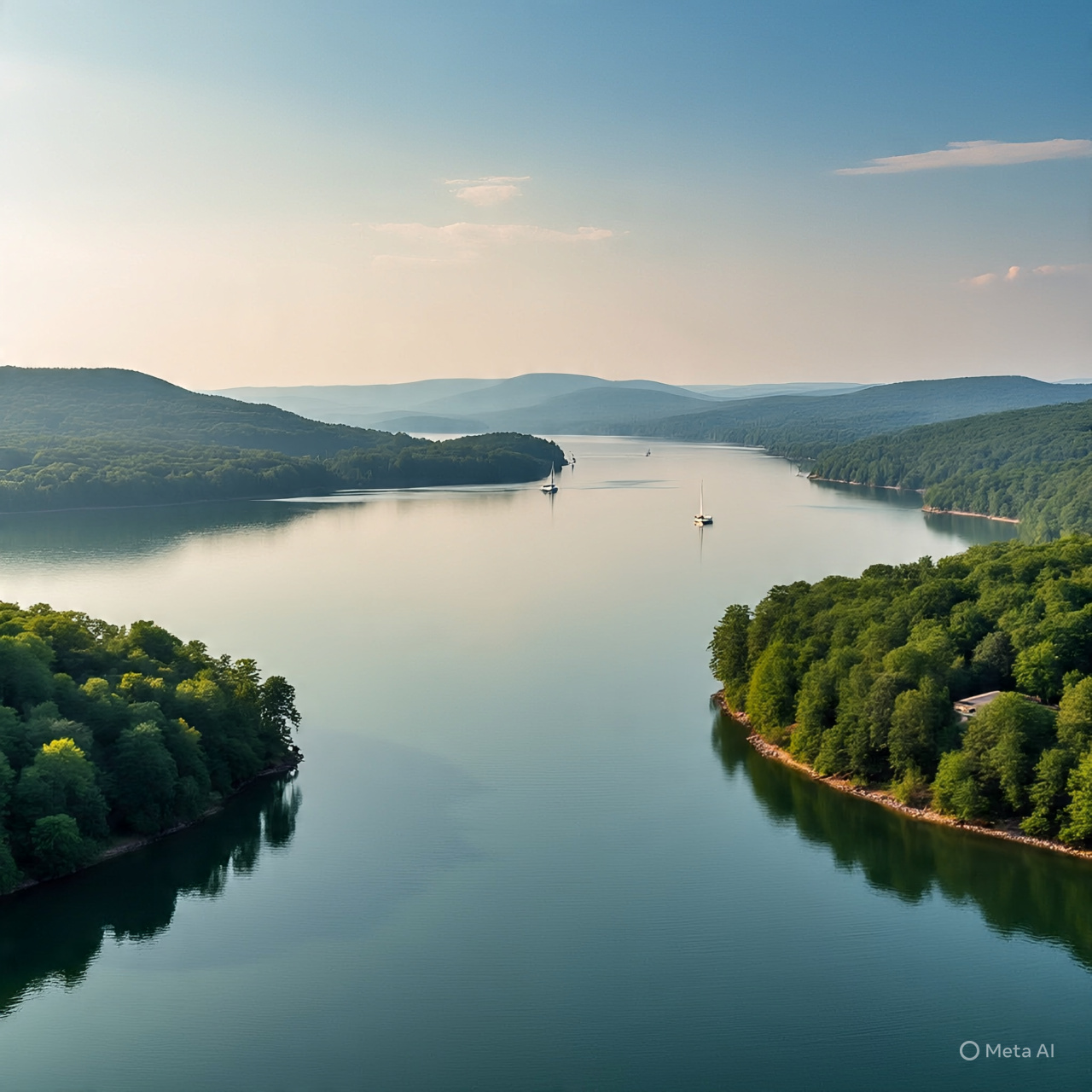In the world of writing—whether academic, professional, or casual—the devil is in the details. Among these often-overlooked details is the simple but impactful question: Should “Lake Texoma” be capitalized? While this may seem like a small or even trivial concern, it touches on broader rules of English grammar, geographic naming conventions, and the pursuit of clarity in communication.
The short answer is simple and definitive: Yes, Lake Texoma should be capitalized. But the longer answer offers valuable insights into why capitalization matters, how such rules apply to other names, and how writers can improve their credibility by respecting these nuances. This guide dives into the reasoning behind this rule, outlines common errors, and provides tips for accurate writing.
What Is Lake Texoma?
Before we jump into the grammar, it’s worth understanding what Lake Texoma actually is. Located on the border of Texas and Oklahoma (hence the name “Texoma”), Lake Texoma is one of the largest reservoirs in the United States. It’s a major destination for boating, fishing, camping, and tourism. Created by the Denison Dam on the Red River, the lake spans over 89,000 acres and attracts millions of visitors each year.
From a geographical and cultural standpoint, Lake Texoma is a proper noun—a specific and unique place. And in English, proper nouns are always capitalized.
Understanding Capitalization Rules
What Are Proper Nouns?
In English grammar, proper nouns refer to specific names of people, places, organizations, or things. Examples include:
- People: Abraham Lincoln, Serena Williams
- Places: New York City, Mount Everest
- Organizations: United Nations, NASA
- Things: Statue of Liberty, Eiffel Tower
Because Lake Texoma refers to one specific lake with a unique name and identity, it falls squarely in the category of a proper noun and should always be capitalized.
Common Noun vs. Proper Noun
Understanding the distinction between common nouns and proper nouns is crucial:
- Common noun: Refers to a general category or type. Example: river, lake, country, city.
- Proper noun: Refers to a unique, specific entity. Example: Mississippi River, Lake Texoma, France, Paris.
“Lake” alone is a common noun. But when it’s part of a full name like “Lake Texoma,” it becomes part of a proper noun and therefore must be capitalized.
Why Capitalization Matters
Enhances Clarity
Capitalizing proper nouns helps readers distinguish between general and specific references. For instance:
- I visited a lake last summer. → Any lake
- I visited Lake Texoma last summer. → A specific, identifiable lake
The second sentence provides clarity and precision.
Reflects Professionalism
Correct capitalization enhances the professionalism of your writing. Whether you’re creating a tourism website, a geography report, or a vacation caption on Instagram, writing “lake Texoma” instead of “Lake Texoma” can subtly undermine your credibility.
Avoids Miscommunication
Improper capitalization can lead to confusion or misinterpretation. If a reader sees “lake Texoma,” they might wonder if the writer meant to refer to a specific place or just any lake in the Texoma region.
Common Mistakes in Capitalization
Many writers—especially those unfamiliar with grammar rules or writing quickly—make capitalization mistakes without realizing it. Let’s explore some of the most common pitfalls.
Lowercasing Proper Nouns
Writing “lake Texoma” or “lake tahoe” is incorrect. The first word in a proper noun (like “Lake” in “Lake Texoma”) must be capitalized, as well as all subsequent words that are part of the name.
Incorrect: I’m traveling to lake Texoma next weekend.
Correct: I’m traveling to Lake Texoma next weekend.
Over-Capitalizing General Words
While under-capitalizing is an issue, over-capitalization can also confuse readers. For example:
Incorrect: We’re visiting Several Lakes in Texas and Oklahoma.
Correct: We’re visiting several lakes in Texas and Oklahoma.
In this case, “several lakes” is a general phrase and should not be capitalized.
Guidelines for Capitalizing Geographical Names
Components of Place Names
Geographical names often consist of multiple parts. Each part of a proper name should be capitalized, including descriptive terms. Examples:
- Lake Michigan
- Mount Kilimanjaro
- Grand Canyon
- Red River
- Lake Texoma
When Not to Capitalize
You shouldn’t capitalize the word “lake” unless it’s part of the official name. For instance:
Correct: I swam in Lake Texoma, but I’ve also swum in many other lakes.
Incorrect: I swam in lake Texoma and other Lakes.
How This Applies to Different Writing Formats
Whether you’re composing a blog post, news article, academic paper, or social media post, correct capitalization contributes to clear and authoritative writing.
Travel and Lifestyle Blogs
In travel blogging, accuracy is everything. Misnaming or miscapitalizing a location can reduce your trustworthiness in the eyes of your readers.
Correct: “10 Things to Do at Lake Texoma”
Incorrect: “10 Things to Do at lake Texoma”
Academic Writing
Academic and research papers require strict adherence to grammar rules. Missteps in capitalization could result in markdowns or peer criticism.
Business and Marketing Copy
For businesses promoting tourism or real estate near Lake Texoma, proper capitalization is part of brand integrity. Imagine printing thousands of brochures with “lake Texoma” in lowercase—it sends the wrong message.
Why This Topic Matters More Than You Think
Attention to Detail Builds Trust
Good grammar shows readers that you pay attention to detail. If you capitalize place names correctly, it implies your overall content is well-edited and trustworthy.
It’s a Sign of Respect
Capitalizing a place name like Lake Texoma correctly shows respect for its cultural and geographical identity. It acknowledges its importance as a distinct, recognized location.
Real-World Examples
News and Media
Major media outlets like CNN or The New York Times always capitalize “Lake Texoma” in their stories. They follow style guides (like AP or Chicago Manual of Style) that reinforce the rule.
Educational Textbooks
Geography and history textbooks always use the correct capitalization: Lake Texoma, Red River, Oklahoma, and so on.
Quick Capitalization Checklist
Here’s a handy list to help you remember when and how to capitalize geographical names like Lake Texoma:
Capitalize all parts of the proper noun
Don’t capitalize “lake” if it’s not part of the official name
Use sentence case for general descriptions
Follow the same rules across blog posts, social media, and academic writing
FAQs About Capitalizing Lake Texoma
Why is “Lake Texoma” capitalized?
Because it is a proper noun—a specific and unique place. English grammar rules dictate that all proper nouns should be capitalized.
Is “lake” always capitalized?
No. Only capitalize “lake” when it is part of the official name of a specific lake, such as “Lake Texoma” or “Lake Michigan.” Otherwise, use lowercase: I love swimming in lakes.
Is it grammatically incorrect to write “lake Texoma”?
Yes. It is considered incorrect because “lake” is part of the proper noun and must be capitalized. The correct form is “Lake Texoma.”
Do style guides agree on this rule?
Absolutely. All major style guides—including AP, MLA, and Chicago—agree that geographic proper names like “Lake Texoma” must be fully capitalized.
How can I remember to do it correctly?
Treat place names like you would a person’s full name. You wouldn’t write “george washington”; you’d write “George Washington.” Similarly, always write “Lake Texoma,” not “lake Texoma.”
What about in hashtags or headlines?
Even in hashtags and titles, it’s best to maintain proper capitalization for clarity and readability. For example: #LakeTexomaAdventures or Discover Lake Texoma This Summer.
Conclusion
It might seem like a small grammatical rule, but getting the capitalization of place names like Lake Texoma correct matters. It reflects accuracy, professionalism, and respect. Whether you’re blogging, teaching, advertising, or just captioning a memory, your words leave an impression—and details like capitalization play a bigger role than many people realize.
So, remember: Lake Texoma should be capitalized. Always.



